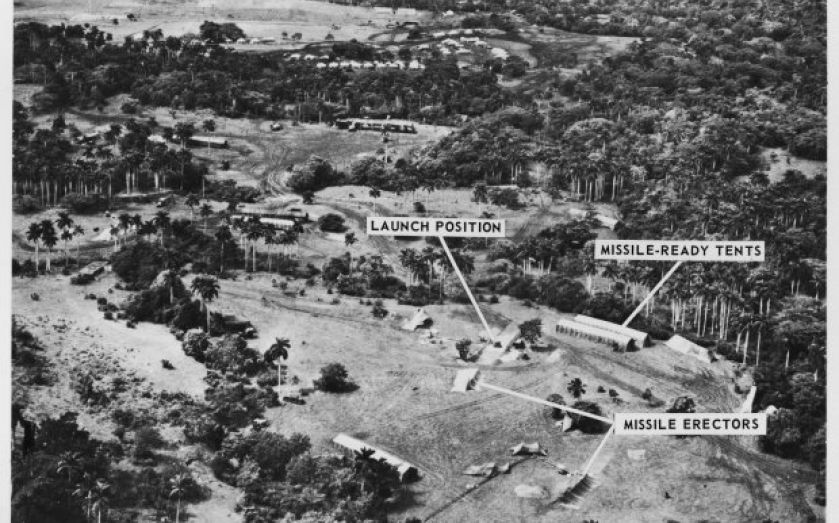The S&P500 says the Cuban missile crisis never happened

What was the scariest period of the Cold War?
It's commonly accepted as being the Cuban missile crisis, a standoff in October 1962, and widely thought of as the closest we've come to all out nuclear conflict.
Lars Christensen, chief analyst at Danske Bank and a fellow of the Adam Smith Institute, suggests that financial markets paint a different picture of events.
The S&P 500 flat-lined for 13 days in October 1962 – suggesting the threat wasn't that scary after all. If we were really on the brink of an all out war, "we would certainly have expected the US stock market to drop like a stone," says Christensen.
To say things were quite tense would be an understatement. So why no collapse? For those that considered the prospect of nuclear war as a case of Mutually Assured Destruction (MAD) the answer is obvious: There would be no winner, and the US and Soviet Union had no incentive to start such a conflict.
If anything, the scariest period was in the run up to the crisis. In his note, "A brief history of bear markets", TIAA-CREF chief investment strategist Brett Hammond notes that the Cold War saw the S&P 500 fall 27 per cent by June 1962.
Perhaps this drop can all be attributed to other key events – Sputnik launch, or the Bay of Pigs invasion. More likely, investors had already priced in the costs of a nuclear standoff by October, and events during those 13 days didn't seem to affect the probability of collapse.
That's not to say that the events didn't affect consumers and investors more generally. Christensen says that the regime uncertainty represented by the Cuban missile crisis would have reduced aggregate supply, and as such real GDP, and inflation for a given monetary policy stance. And that's what we got in the late 1960s.
The crisis did also "raise volatility without impacting stock-market levels," according to Nicholas Bloom's paper "The impact of uncertainty shocks".
The best bit? "The market was of course right," notes Christensen, after 13 days the stand-off ended, with no Third World War.